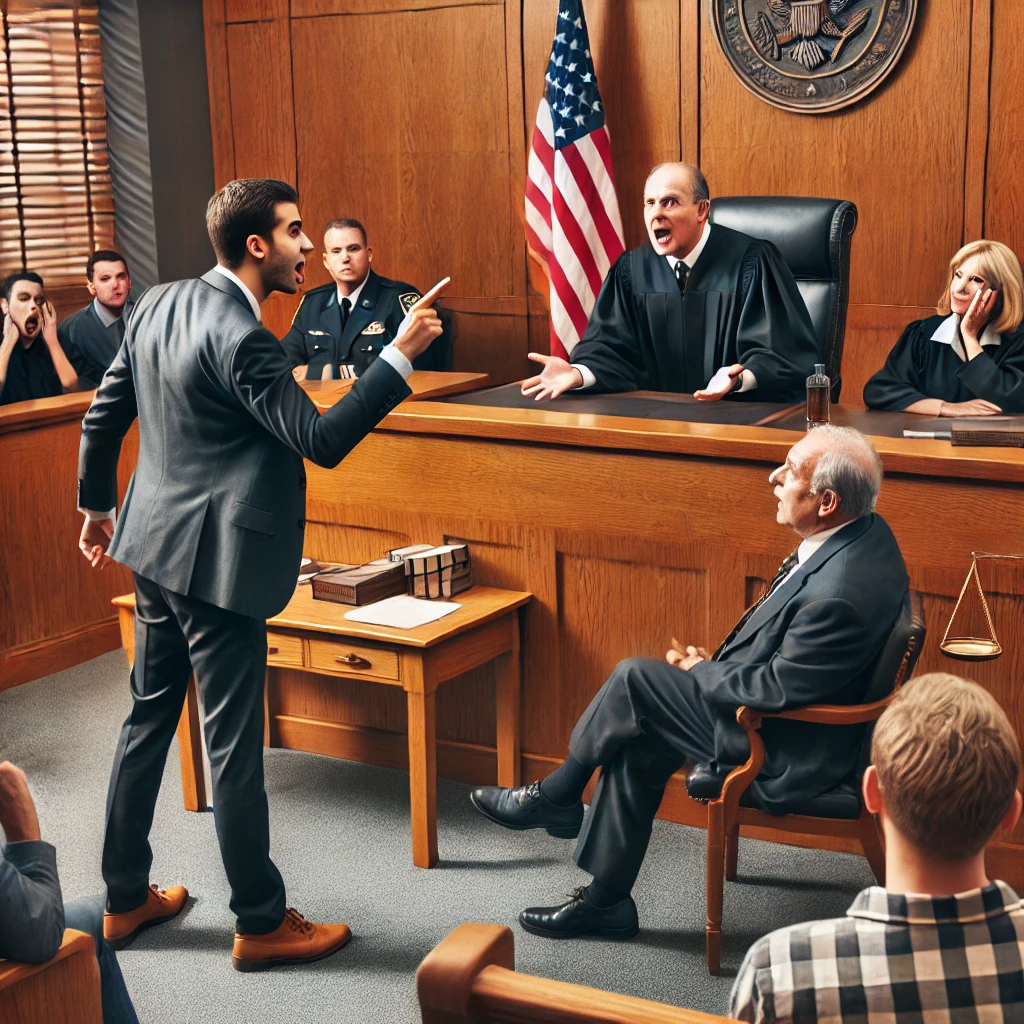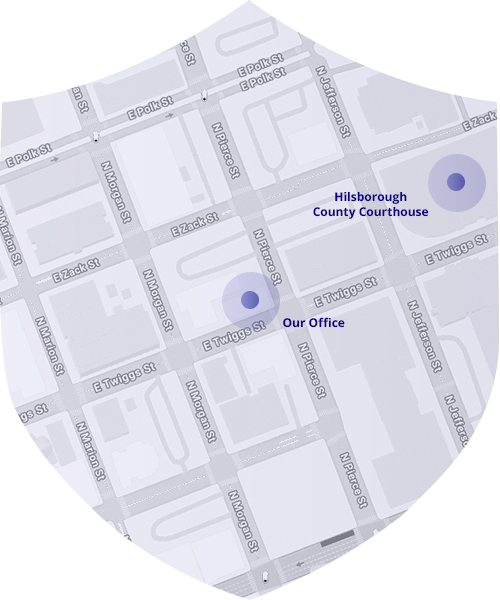- Free Consultation 24/7: (813) 727-7159 Tap Here To Call Us
Contempt of Court in Florida: What Tampa Defendants Need to Know

The Brancato Law Firm, P.A. | Updated January 19, 2026
If you are facing a contempt of court allegation in Tampa, the consequences can be far more serious than a simple warning from a judge. Tampa Criminal Defense Attorney Rocky Brancato and The Brancato Law Firm, P.A. have spent more than 25 years defending clients against contempt charges throughout Hillsborough, Pinellas, and Pasco Counties. Understanding how contempt works—and how Florida courts apply it—can make a significant difference in protecting your freedom and your future.
| Key Takeaway: Contempt of court can result in jail time, fines, and long-term consequences affecting custody, employment, and professional licensing. However, procedural defenses exist—including challenging improper notice, asserting due process rights, and negotiating compliance plans. Early intervention by an experienced Tampa criminal defense attorney is critical. |
What Is Contempt of Court Under Florida Law?
| Legal Definition: Contempt of court occurs when a person obstructs justice, violates a lawful court order, or disrespects the authority of the court. More than a century ago, the U.S. Supreme Court emphasized that contempt should be used only when “necessary or proper.” Gompers v. Buck’s Stove & Range Co., 221 U.S. 418 (1911). Florida divides contempt into two main categories: criminal contempt (punitive) and civil contempt (coercive). |
Florida law further divides criminal contempt into direct and indirect forms. Understanding these distinctions is essential because each type carries different procedural requirements and defense strategies. Moreover, the consequences vary significantly depending on whether the contempt is classified as criminal or civil.
Types of Contempt in Florida Courts
| Type | Definition | Common Examples |
| Direct Criminal Contempt | Occurs in the courtroom, in the judge’s presence | Disrupting a hearing, threatening the judge, lying during voir dire |
| Indirect Criminal Contempt | Occurs outside the judge’s presence; requires formal notice and hearing | Violating an injunction, withholding evidence, disobeying court orders |
| Civil Contempt | Coercive, not punitive; designed to compel compliance | Failure to pay child support, refusing to produce documents |
Direct Criminal Contempt in Florida
Direct criminal contempt happens in the courtroom, in the judge’s presence. The court can see or hear the behavior firsthand. Although judges can address direct contempt immediately, Florida Rule of Criminal Procedure 3.830 now requires strict procedural compliance. Specifically, the 2021 amendments ensure due process before punishment is imposed.
As a former police academy instructor who trained officers on courtroom testimony and demeanor, I understand exactly how courtroom conduct is evaluated—and what conduct crosses the line into contempt. This perspective helps me challenge contempt findings where the alleged conduct does not truly meet the legal standard.
Indirect Criminal Contempt: Violations Outside Court
Indirect criminal contempt occurs outside the judge’s presence. Because the judge did not witness the behavior, indirect contempt requires procedural safeguards. Consequently, the defendant must receive written notice and an opportunity to defend the allegations before the court can impose punishment.
Florida law also provides a right to a jury trial if the court seeks more than six months of jail time. Tide v. State, 804 So. 2d 412 (Fla. 4th DCA 2001). This right carries important procedural protections, including time to prepare, discovery, and full trial rights.
| Warning: Contempt proceedings move quickly and judges expect strict compliance with procedural rules. If you receive an order to show cause, do not ignore it. Failure to appear or respond can result in immediate arrest and jail time. Contact a Tampa criminal defense attorney immediately. |
Indirect Criminal Contempt in Juvenile Proceedings
Florida appellate courts strictly enforce the rules governing contempt in juvenile cases. In C.M.B. v. State of Florida, No. 2D2024-0091 (Fla. 2d DCA Mar. 14, 2025), the Second District reversed a juvenile’s contempt adjudication because the trial court issued orders to show cause without affidavits from witnesses with personal knowledge. Florida Rule of Juvenile Procedure 8.150(c)(2) requires those affidavits.
The court relied on its earlier decision in A.N.W. v. State, 386 So. 3d 621 (Fla. 2d DCA 2024), explaining that failure to follow these procedural rules constitutes fundamental error. Therefore, the case was reversed and remanded.
Criminal vs. Civil Contempt: Why the Distinction Matters
While both forms involve disobeying a court, they serve very different purposes and carry different consequences.
| Factor | Criminal Contempt | Civil Contempt |
| Purpose | Punish past behavior | Compel future compliance |
| Sentence | Fixed; remains even if person later complies | Ends when person complies (“purge” the contempt) |
| Common Example | Disrupting court proceedings | Unpaid child support |
| Key Phrase | “You did this, now face punishment” | “You hold the key to your own jail cell” |
Penalties for Contempt of Court in Florida
Criminal contempt can result in fines and jail time. When a statute does not specify the penalty, Florida Statute 775.02 caps the punishment at up to one year in jail and a $500 fine. Additionally, contempt can impact child custody disputes, employment, professional licensing, business relationships, and future criminal proceedings.
Civil contempt is not designed to punish—it is designed to compel compliance. Once the person follows the court’s order, the sanction is lifted. However, this does not mean civil contempt is minor. You can absolutely go to jail for civil contempt until you comply.
How The Brancato Law Firm Defends Contempt Cases
Contempt hearings move quickly, and judges expect strict compliance with procedural rules. I challenge contempt findings by ensuring due process rights are honored, challenging improper notice or defective orders to show cause, negotiating compliance plans that satisfy the court, and protecting clients from unnecessary or excessive penalties.
| Case Study: Jury Trial Demand Leads to Dismissal in Criminal Contempt Case A client faced indirect criminal contempt charges with the possibility of more than six months in jail. Because the potential sentence exceeded six months, I demanded a jury trial—a constitutional right that many attorneys overlook in contempt proceedings. The judge and the plaintiff’s attorney were caught off guard; neither realized a jury trial was even possible in a contempt case. As the case proceeded toward the jury trial date, the matter was ultimately dismissed with the passage of time. Result: Contempt Charge Dismissed. |
Why Tampa Defendants Choose The Brancato Law Firm
| Credential | What It Means for Your Defense |
| 25+ Years Criminal Defense | Deep knowledge of Tampa courts, judges, and procedures in the 13th Judicial Circuit |
| Former Police Academy Instructor | Insider knowledge of courtroom procedure and testimony standards |
| Former Chief Operations Officer, Hillsborough PD Office | Led and mentored a staff of over 100 attorneys handling complex criminal matters |
| Aggressive Procedural Challenges | Contempt findings reversed by challenging defective notice and due process violations |
Frequently Asked Questions About Contempt of Court in Florida
Questions About Types of Contempt
Criminal contempt punishes past conduct with a fixed sentence that remains even if the person later complies. Civil contempt, on the other hand, compels future compliance and ends when the person follows the court’s order. Understanding this distinction is critical because the defenses and consequences differ significantly.
Indirect criminal contempt involves violating court orders or engaging in conduct outside the courtroom that undermines the court’s authority. Because the judge did not witness the behavior, it requires written notice, a formal hearing, and full due process protections before punishment can be imposed.
Yes, but juvenile contempt proceedings must follow Florida Rule of Juvenile Procedure 8.150. Specifically, orders to show cause must be supported by affidavits from witnesses with personal knowledge. Failure to follow these rules is fundamental error that can result in reversal on appeal.
Questions About Penalties and Defenses
Yes. Civil contempt can result in jail if you fail to comply with a court order, such as child support. However, you must be given the ability to “purge” the contempt by complying with the order. Once you comply, the sanction is lifted.
Yes, but only when the court seeks more than six months of jail time. Under Tide v. State, 804 So. 2d 412 (Fla. 4th DCA 2001), this right includes full due process protections such as time to prepare, discovery, and trial rights.
Very serious. Contempt can lead to jail time, fines, and long-term consequences affecting family law matters, employment, and professional licensing. Moreover, contempt findings can impact future criminal proceedings. Early legal intervention is essential.
Absolutely. A skilled Tampa criminal defense attorney may negotiate compliance plans, seek modification of the underlying order, or challenge an improper contempt finding on procedural grounds. Representation often prevents unnecessary penalties and protects your freedom.
Your Freedom Is Worth Fighting For
Contact Tampa Criminal Defense Attorney Rocky Brancato Today
Contempt charges move fast. Judges expect immediate compliance with procedural rules, and the consequences of ignoring an order to show cause can be severe. Do not wait until you are in handcuffs to seek legal help.
Every day you delay is a day the court builds its case. Your freedom is at stake.
Call (813) 727-7159 for a Confidential Consultation
620 E. Twiggs Street, Suite 205, Tampa, FL 33602
Serving Hillsborough, Pinellas, and Pasco Counties
25+ Years of Criminal Defense Experience | Former Chief Operations Officer, Hillsborough County Public Defender’s Office

















